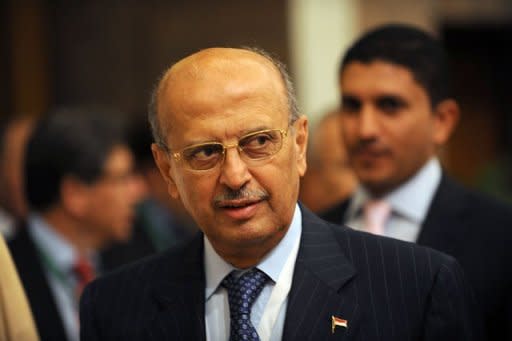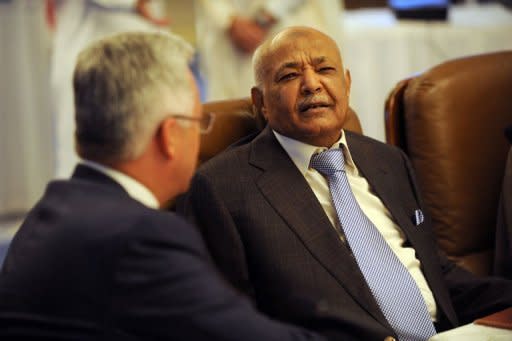Aid pledges to Yemen at $6.4 bln: World Bank
Global donors Tuesday made aid pledges worth $6.4 billion to Yemen, the World Bank said, half of what Sanaa says it needs to weather a rough political transition triggered by Arab Spring protests. The new figure is up from $4 billion pledged to the impoverished state at a meeting of the Friends of Yemen in May. Saudi Arabia had solely promised $3.25 billion of the $4 billion raised in May. "The total number is $6.396 billion, to fund the short term and portions of the long term," Inger Andersen, the World Bank's Vice President for the Middle East and North Africa said at the end of the first day of the donors meeting in the Saudi capital. The World Bank gave "a grant of $400 million on top of existing $700 millions, of which $200 million have been dispersed," she said. NGOs are scheduled to meet on Wednesday, the final day of the meeting. Yemen told the donors meeting it needs almost $12 billion in the short term. "The national unity government needs $11.9 billion in the short term," Planning and International Cooperation Minister Mohammed al-Saadi told delegates. The government "urgently needs to spend $4.7 billion on serious humanitarian needs by February," he said. In addition to Saudi Arabia and the World Bank, the United States has pledged a total of $846 million, the Arab Development Fund $510 million and the Arab Monetary Fund $380 million. The EU has pledged $214 million, while Britain promised $311 million, Germany $158 million and the Netherlands $100 million. Saudi Finance Minister Ibrahim al-Assaf opened the Tuesday meeting with a call for more aid to the kingdom's impoverished southern neighbour, saying "Yemen is facing many economic problems." Assaf and Saadi on Tuesday signed three agreements detailing the Saudi aid package offered in May, which amounts to a $1 billion deposit in Yemen's central bank, a $1.75 billion grant, and $500 million to fund and guarantee Saudi exports to Yemen. Wael Zakout, the World Bank's country manager for Yemen, had said Saturday on the bank's website that his organisation hopes to raise $6 billion at the latest donor meeting to support the recovery plan put together by the transitional government in Sanaa. "We will hold another donor conference after 2014 to raise the rest of the needed funds," he said. Rajiv Shah, administrator of the US development fund USAID, said his country was providing $345 million in aid to Yemen this year. "Over half of our support is for political transition, humanitarian assistance and development. The majority of the amount, $117 million, is for humanitarian assistance," he said. The two-day Riyadh meeting aims to address several issues, including reconstruction, humanitarian needs and ways to strengthen security and stability in Yemen, Saadi told reporters in Sanaa ahead of the conference. It will also cover political dialogue, preparations for elections and basic infrastructure needs, he said, adding some states would pledge aid in Riyadh and other await a Friends of Yemen meeting in New York next month. Yemen is undergoing a political transition after a year-long uprising unseated veteran leader Ali Abdullah Saleh and left the economy of the Arabian peninsula's poorest country in shambles. But so far only 43 percent of $455 million earlier asked for by the United Nations and other organisations has been received for humanitarian aid for Yemen. Aid agency Oxfam urged donors to disperse their pledges immediately with a significant amount aimed at addressing "humanitarian needs." "Many families we have met have been selling off their possessions and livestock, resorted to begging, getting heavily into debt and pulling their children out of school to work," it said Tuesday. "A swift response is needed now to ensure lives and futures are not lost," it added. Aid agencies say nearly half of Yemen's 10-million population do not have enough food to eat, and one in three children is severely malnourished. The Friends of Yemen forum was set up at an international conference in London in January 2010 to help Sanaa combat a resurgent Al-Qaeda threat in the ancestral homeland of its slain chief Osama bin Laden and other security challenges. The IMF says the 2011 political crisis has taken a serious toll on the Yemeni economy, which it said contracted by 10.5 percent, while inflation had soared to 17.6 percent.




